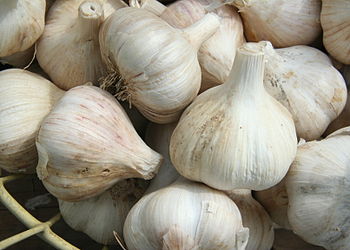Public release date: 29-Sep-2010
– more than 20 substances in garlic oil that may contribute to the effect. “In conclusion, garlic oil possesses significant potential for protecting hearts from diabetes-induced cardiomyopathy

Garlic has “significant” potential for preventing cardiomyopathy, a form of heart disease that is a leading cause of death in people with diabetes, scientists have concluded in a new study. Their report, which also explains why people with diabetes are at high risk for diabetic cardiomyopathy, appears in ACS’ bi-weekly Journal of Agricultural and Food Chemistry.
Wei-Wen Kuo and colleagues note that people with diabetes have at least twice the risk of death from heart disease as others, with heart disease accounting for 80 percent of all diabetes-related deaths. They are especially vulnerable to a form of heart disease termed diabetic cardiomyopathy, which inflames and weakens the heart’s muscle tissue. Kuo’s group had hints from past studies that garlic might protect against heart disease in general and also help control the abnormally high blood sugar levels that occur in diabetes. But they realized that few studies had been done specifically on garlic’s effects on diabetic cardiomyopathy.
The scientists fed either garlic oil or corn oil to laboratory rats with diabetes. Animals given garlic oil experienced beneficial changes associated with protection against heart damage. The changes appeared to be associated with the potent antioxidant properties of garlic oil, the scientists say, adding that they identified more than 20 substances in garlic oil that may contribute to the effect. “In conclusion, garlic oil possesses significant potential for protecting hearts from diabetes-induced cardiomyopathy,” the report notes.
Related articles
- Garlic’s many health benefits studied (examiner.com)
- Study: Garlic May Alleviate Diabetes And Oxidative Stress (atlantablackstar.com)
- Potential for prevention and treatment of heart failure in diabetics (medicalnewstoday.com)
- Study: Garlic May Alleviate Diabetes And Oxidative Stress – Atlanta Black Star (innerstandingisness.com)
